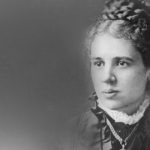
Short-term mission trips have encountered criticism, but they have the potential to positively impact both the mission and the participant.
By D. Scott Hildreth
Summer is coming, and for most churches, this season brings youth camps, Vacation Bible School, and lower Sunday attendance. Increasingly, summer is also the season for mission trips. The last couple of years have severely affected our ability to travel, which has led to a decline in these trips. But this year, as things are more open, many churches are planning to go.
But short-term mission trips have encountered significant criticism including:
1. Poor stewardship
Mission trips are expensive. Sometimes, churches spend more on a one-week experience than the annual support for a missionary family or national pastor. This isn’t a reason not to go. However, we should keep this in mind as we evaluate the trip. Are we using God’s resources well?
2. Poor missiology
The missionary mandate is to make disciples of all nations (Matthew 28:19). Short-term mission trips may be part of this task, but they cannot fully accomplish it. We must remember that our short-term trips must be done with a long-term strategy.
“Short-term mission trips may be part of the Great Commission, but they cannot fully accomplish it. Our short-term trips must be done with a long-term strategy.” — @dshildreth Click To Tweet3. Poor cultural adaptation
Perhaps the greatest benefit of a short-term mission trip is the way it expands our view of the world and God’s work among the nations. But far too many short-term missionaries simply try to export their own cultural experiences and refuse to believe that God’s work in different places may look different. Rather than building bridges, we build walls and undermine partnerships.
The potential of short-term mission trips
On the other hand, short-term mission trips have the potential to play a much more positive role in both the mission and the life of the participant. The International Mission Board (IMB) tells us the vast majority of missionary candidates point to a short-term trip as a significant moment in their call to the nations.
The question we need to ask is, what can we do to make the most of short-term mission trips? Let’s consider two significant issues and suggestions for addressing these so that your mission trips this season will accomplish much for Jesus.
Short-term mission trips and American consumerism
First, let’s look at one of the biggest problems we face from within our own church culture … mission trips feeding into American consumerism. We all battle the temptation to view mission trips as Christian vacations. This feeds one of the more problematic elements of our American culture—being consumers rather than servants.
David Livingston famously said, “God had an only Son and He made Him a missionary.” When Jesus described His work in the world, He said He came to serve, not to be served (Matthew 20:28).
“Build deep partnerships with the mission field. Don’t look for a new place and new people each year.” — @dshildreth Click To TweetMission trips can serve as tremendous moments of spiritual transformation for participants. What are some ways we can eliminate the consumer mentality of missions?
- Emphasize the glory of God in the work, not simply human need.
- Build deep partnerships with the mission field. Don’t look for a new place and new people each year.
- Design each mission trip to serve as a tool for the discipleship of the participants rather than being a stand-alone event.
- Include both pre and post-trip activities. Don’t assume participants will prepare or process properly.
- Be careful to avoid language that might promote people and the experiences as a product for sale rather than an opportunity for service.
Short-term mission trips and mission field partnership
Whereas this first concern focuses on those traveling with us and their ongoing spiritual development, the second highlights the mission field and the ongoing spiritual health of those we are serving.
One of the most significant concerns for short-term mission trips is the tendency to foster dependency. Our trips should strengthen and advance the work of local partners. However, if we aren’t careful, we can do significant damage if we do for people what they could do for themselves. We can stunt the maturity of local churches by doing their work or creating expectations they are unable or unwilling to meet on their own.
The history of missions is filled with tragic stories of well-intentioned Westerners undermining the health of indigenous Christian movements. Remember, the goal of the Great Commission is to “make disciples of all nations” (Matthew 28:19, CSB). Let us never forget that discipleship often requires dependency on the Lord—looking to Him as the supplier of our needs. God may indeed use us as the answer to someone’s prayer. However, we do not want to be the first place they look as the source.
“The history of missions is filled with tragic stories of well-intentioned Westerners undermining the health of indigenous Christian movements.” — @dshildreth Click To TweetIn the book, When Helping Hurts, the writers differentiate between ministry in a moment of crisis and ministry during the normal seasons of life. In a crisis, people cannot help themselves, and we should step in to do all we can. However, in the normal seasons, we need to work with others. Our presence and work cannot be necessary for ongoing ministry.
Here are some ways to minimize the opportunity for dependency:
- Be willing to say no to certain mission trips and certain requests.
- Whenever possible, insist on ways to minister “with” not “for” local believers.
- Handle money with care.
- Ask how the work you are doing will further long-term progress.
Each of us is called to pursue the Great Commission as a way of life. For some, obedience requires permanent relocation to the mission field. For others, our journey includes these short-term trips. These simple guidelines are designed to help you make the most out of these opportunities for God’s glory and the good of the nations.
For permission to republish this article, contact Marissa Postell Sullivan.

D. Scott Hildreth
Scott serves as Associate Professor of Missiology at Southeastern Baptist Theological Seminary. He is the author of Together on God’s Mission and the co-author of Sharing Jesus Without Freaking Out. Both books are published by B&H Academic.












